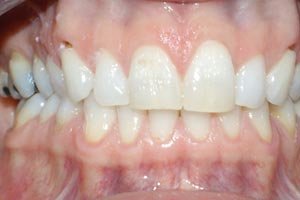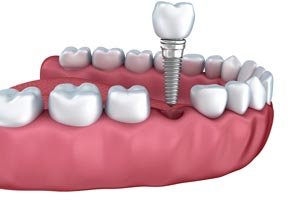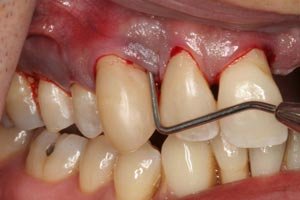Oral Hygiene
WHAT IS ORAL HEALTH?
Oral health means being free of chronic mouth and facial pain, oral and throat cancer, oral sores, birth defects such as cleft lip and palate, periodontal (gum) disease, tooth decay and tooth loss, and other diseases and disorders that affect the mouth and oral cavity..
WHAT ARE COMMON CAUSES OF ORAL DISEASE?
Oral diseases share common risk factors with the four leading chronic diseases -- cardiovascular diseases, cancer, chronic respiratory diseases and diabetes -- including unhealthy diet, tobacco use, and harmful alcohol use. Poor oral hygiene is also a risk factor.
ORAL HEALTH FACTS: -
- The most common oral diseases are dental cavities and periodontal (gum) disease.
- 60-90% of school children worldwide have dental cavities.
- Severe periodontal (gum) disease, which may result in tooth loss, is found in 5-20% of middle-aged adults; the rate varies across geographical regions.
HOW CAN THE BURDEN OF ORAL DISEASES BE REDUCED?
- The burden of oral diseases and other chronic diseases can be decreased simultaneously by addressing common risk factors such as tobacco use and unhealthy diet:
- Decreased intake of sugars and well-balanced nutrition prevent tooth decay and premature tooth loss.
- Tobacco cessation and decreased alcohol consumption reduce risk for oral cancers, periodontal disease, and tooth loss.
- Fruit and vegetable consumption is protective against oral cancer.
- Effective use of protective sports and motor vehicle equipment reduces facial injuries.
Dental cavities can be prevented by a low level of fluoride constantly maintained in the oral cavity. Fluoride can be obtained from fluoridated drinking water, salt, milk, mouth rinse or toothpaste, as well as from professionally-applied fluorides. Long-term exposure to an optimal level of fluoride results in fewer cavities in both children and adults.
By using these prevention strategies, the high cost of dental treatments can be avoided
Oral Hygiene and You
Oral hygiene is a personal matter that becomes public as soon as you ignore it or open your mouth!
Moral of the story: never ignore oral hygiene. Pay utmost attention to the natural set of pearly whites that have been gifted to you. You will never get a set better than this, irrespective of all the advancement in dentistry.
Even with health consciousness at its all time high, many of us seem to fail when it comes to personal hygiene and good dental health. Most people are busy getting their cholesterol, acidity, thyroid and many other parameters checked and corrected, but fall short when it comes to visiting their dentist every 6 months in order to get a dental ‘ clean chit’.
Good Oral Health for a better quality of life
Oral health is a part of total health and essential for a good quality of life. Good oral health does not just mean you have pretty teeth; rather the entire mouth including mouth including teeth, gums; jawbones and supporting tissues need to be in good health. Regular dental checkup helps you in maintaining oral health and avoid related health problems. The most common oral health problems are toothache and gum disease. We are all at risk of tooth decay, or cavities. Bacteria (germs) that naturally live in our mouths are sugar from food to make acids. Over time, the acids destroy the outside layer of your teeth. Then holes and other tooth damage occur. Other problems that may compromise oral health are burning mouth syndrome, cold sores, dry mouth and bad breath or halitosis.
To promote good oral health in the general population we should primarily focus on children. Teaching your child proper oral care at a young age is an investment in his or her health that will pay lifelong dividends. You can start by setting an example; taking good care of your own teeth sends a message that oral health is something to be valued and anything that makes taking care of teeth fun, like brushing along with your child or letting them to chose their own tooth brush, encourages proper oral care.
Diet plays an important role in oral diseases including dental caries, dental erosion, developmental defects and gum diseases. Hence a role of diet and nutrition in the etiology and prevention of oral diseases needs to be addressed adequately. Controlling intake of sugars is important for caries prevention following global recommendations that encourage a diet high in healthy staple foods, probiotics, fruits and vegetables and low in free sugars and fat will protect both oral and general health.
A guide to good oral health should be followed so that you and your family have healthy teeth and gums to last a lifetime. In conjugation to all these guidelines there is an important aspect for excellent oral health; that is, visit your dentist regularly and follow his advice religiously!
Good oral health means being free of oral sores, gum disease, tooth decay, tooth loss, oral and throat cancer and other diseases and disorders that affect the mouth and oral cavity.
It is not worthy that oral diseases share common risk factors such as unhealthy diet, tobacco use with the four leading chronic diseases ----- cardiovascular diseases, cancer, chronic respiratory diseases, diabetes.
Hence, oral health activities are integral to overall chronic disease prevention and control framework and health promotion. The strategic approaches to good oral health include creating healthy environments, especially for disadvantaged sections of the population; slowing and reversing trends in common chronic disease risk factors such as unhealthy diet and physical inactivity, thus preventing premature deaths and avoidable disability due to major chronic diseases. Because, life is precious.













